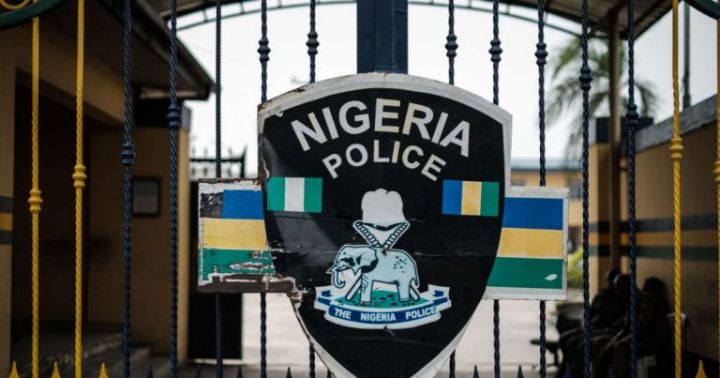The Nigeria Police Force has announced an extension of the enforcement deadline for the mandatory acquisition of tinted glass permits to October 2, 2025. This decision comes after consultations with stakeholders and in response to growing concerns over the readiness of motorists to comply with the policy. Initially scheduled to commence much earlier, the enforcement shift provides vehicle owners with an extended window to regularize their permits and avoid penalties.
The Force Headquarters explained that the extension was designed to ensure fairness, transparency, and an opportunity for citizens to adjust to the policy without undue hardship. According to the police, the initiative aligns with ongoing reforms aimed at enhancing road safety, curbing criminal activities facilitated by tinted vehicle windows, and improving public security. The Inspector-General of Police, through the Force Public Relations Officer, emphasized that the new deadline should not be mistaken as a relaxation of the law but rather as a considerate measure to ensure full compliance.

Motorists have been urged to take advantage of the additional time to apply for and secure the necessary permits through the designated channels. The application process involves providing proof of vehicle ownership, valid identification, and stating the reason for having tinted glass. The police noted that only genuine requests that meet the stipulated criteria would be approved, with the aim of balancing personal privacy rights with the overriding need for public safety.
The police also clarified that the permit system is not an attempt to restrict the use of vehicles with factory-fitted tints for legitimate purposes. Rather, it is to ensure that all such vehicles are documented in a central database that would aid law enforcement agencies in tracing offenders if criminal activities are committed using these vehicles. This measure, the Force insists, is vital in the fight against crimes such as kidnapping, armed robbery, and smuggling, which have sometimes involved the use of vehicles with tinted glass to conceal occupants.
In recent months, the debate over tinted glass permits has attracted attention from various quarters, including human rights advocates, automobile dealers, and civil society groups. Some have argued that the permit process could be made more accessible through online platforms to avoid congestion and delays at physical offices. Responding to this, the police have pledged to streamline the process and improve its digital infrastructure, making it easier for applicants to submit documents, track their applications, and receive approvals without unnecessary bureaucracy.
The Force further reassured the public that its officers have been briefed to conduct the enforcement exercise professionally and without extortion or harassment. The Inspector-General stressed that any officer found engaging in misconduct during the process would face disciplinary action. This, the police believe, will help foster trust and cooperation between law enforcement personnel and the public.
While acknowledging that some vehicle owners may have legitimate reasons for using tinted glass, security experts maintain that proper regulation is essential to prevent abuse. They point out that in many criminal investigations, tinted vehicles have been used to evade detection, making it difficult for witnesses or law enforcement officers to identify suspects. With the permit database in place, authorities hope to significantly reduce such occurrences.
Stakeholders in the transportation and automotive sectors have welcomed the extension, describing it as a relief for both private and commercial vehicle owners. They have, however, called on the police to ensure the permit system is transparent and free from corruption. The Federal Road Safety Corps (FRSC) has also expressed support for the initiative, stating that it aligns with national road safety goals and could complement existing traffic regulations.
Looking ahead, the police plan to carry out nationwide sensitization campaigns to educate citizens on the benefits of the permit system, the application process, and the penalties for non-compliance after the October 2 deadline. According to the Force, awareness and public buy-in are critical to the success of the policy. The campaign will involve collaborations with media organizations, transport unions, and community leaders to ensure the message reaches all corners of the country.
With the extension in place, law enforcement agencies hope that citizens will view the initiative as a partnership rather than a punitive measure. The police have reiterated that the ultimate objective is to create a safer environment for all road users while respecting the rights of individuals to use their vehicles lawfully. As the new deadline approaches, attention will turn to how effectively the permit system can be implemented in a way that balances security needs with public convenience.
In the meantime, motorists have been advised not to wait until the last minute to begin the application process, as early compliance could prevent bottlenecks and last-minute rushes. The police have also warned that no further extensions should be expected after October 2, underscoring the seriousness of the policy’s enforcement.
If effectively implemented, the tinted glass permit regulation could become a key tool in the country’s broader security strategy. However, its success will largely depend on the efficiency of the process, the professionalism of enforcement officers, and the willingness of citizens to comply in good faith. With all eyes now on the October 2 deadline, the coming weeks will determine whether the extended timeline will indeed lead to smoother compliance and stronger public safety outcomes.
Support InfoStride News' Credible Journalism: Only credible journalism can guarantee a fair, accountable and transparent society, including democracy and government. It involves a lot of efforts and money. We need your support. Click here to Donate
